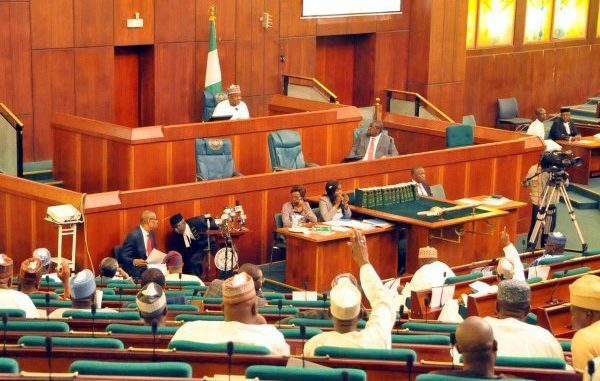
The Office of Secretary to Government of the Federation, SGF, and some stakeholders have opposed the proposed exemption of para-military organisations from the contributory pension scheme.
The OSGF made its position known at the public hearing organised by the House of Representatives Committee on Pension on a Bill to exclude personnel of paramilitary and anti-graft agencies from the contributory pension scheme.
Representative of the OSGF, Roy Ogor, disclosed that the white paper issued by the Federal Government, prohibited all Ministries, Departments and Agencies, MDAs, and paramilitary outfits from pulling out of the contributory pension scheme.
He explained that the provisions of the exemption bill contravenes federal government’s position, so it should be jettisoned.
Mr. Ogor urged the National Assembly to jettison any proposed legislation that could further compound the socio-economic predicaments of the country and Nigerian workers,
He also noted that status quo should be maintained to enable the public and private employers to meet their 18 per cent pension obligations as encapsulated in Pension Reform Act, 2014.
He lamented that public and private employees were currently struggling to comply with the current contribution of 18 per cent as the lingering economic recession affects both public and private employers.
He, however said that rather than the proposed amendment which seeks to exempt paramilitary personnel, the Pension Reform Act has provision for increase in pension contribution by employers.
Mr. Dogara urged the committee and all stakeholders at the public hearing to examine the bill critically.
“We are conscious of the fact that the pension industry has become a crucial sector that is playing a formidable role towards the development of the economy in terms of availability of huge investment funds of about N6.4 trillion.”
He said money provided by the scheme could be deployed both in the real sector as well as in the capital market sector.
On his part, Nigeria Labour Council, NLC, President, Ayuba Wabba, said that the Federal Government had in excess N1.6 trillion pension liabilities under the DBS when the CPS was introduced in 2004.
Chairman, House committee on Pension, Hassan Shekarau, in his remarks, informed the stakeholders that the 33 per cent pension arrears had been paid to personnel of Nigeria Customs Service; Nigeria Prisons Service; and Nigerian Immigration Service.
Earlier on Thursday, a labour leader, Issa Aremu, said Pension Reform Acts of 2004 and 2014, were ”outcomes of executive bills which addressed the delicate interests of the pensioners, government and the economy.”
Mr. Aremu, a national executive committee member of NLC, said that the new bill was informed by “narrow and vested interest consideration” and cannot do justice to all.
The labour leader also said any private member bill which seeks to erode the gains of the 13-year-old N7 trillion Contributory Pension Scheme in terms of coverage and resource pools is “counterproductive” and should not be encouraged.
He said pensions of the nation’s working men and women in security services are better secured in a national contributory scheme than the old “unfunded and unsustainable discredited” Defined Benefits Scheme, DBS.
According to him, until the recent contributory pension reform, “all stakeholders bore witness to ugly features of corruption, inefficiency and share looting,” which he claimed characterized the old DBS.


Be the first to comment